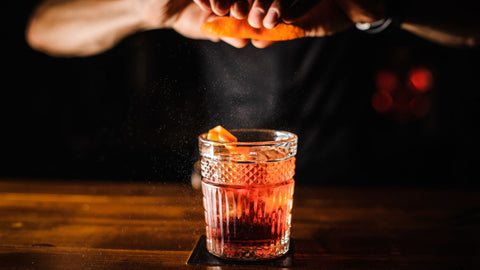
Are you considering a mixology course but unsure of how to evaluate cost and quality? Before investing in a course, it's important to do your research as the price tag doesn't always reflect the course's quality. Here are some tips to consider for evaluating mixology courses:
Factors to Consider
When evaluating mixology courses, there are several factors to take into account:
Pricing
Consider the cost of the course. Is it reasonably priced for what you're getting?
Instructor
Look into the instructor and their qualifications. Do they have experience in the field?
Curriculum
Review the course curriculum. Does it cover all the techniques and recipes you'd like to learn? Is it focused on the beverages and alcohol you're interested in?
Facilities
Check out the facilities and equipment available. Are they up to date and well-maintained? Do they provide ingredients and supplies?
Location
Think about the location. Is the course offered onsite or online? Is the location convenient for you?
Practice
Make sure the course includes practice time. Are you able to practice bartending and cocktails? Can you practice with different spirits and liquors?
Assessing Costs
When evaluating mixology courses, it's important to consider all the costs associated with the course. These can include fees, ingredients, supplies, equipment, facilities, instructor certification, curriculum, and practice beverages. Understanding the pricing and evaluating the quality of these factors will help you make an informed decision.
Quality of Instructor and Curriculum

Quality is an important factor to consider when selecting a mixology course. Evaluate the cost and quality of the course, including the instructor's qualifications and experience. Consider the curriculum, facilities, techniques, and recipes covered. It's important to ensure the course provides a comprehensive education in mixology.
Understanding Mixology Course Fees
When assessing mixology course fees, consider factors such as quality, pricing, instructor experience, included ingredients and supplies, coverage of bartending and cocktails, practice recipes and beverages, knowledge of alcohol and spirits, and coverage of techniques. Evaluating these factors will help ensure the course fees are worth the cost.
Essential Ingredients and Supplies in Mixology Courses
Ingredients and supplies are essential components of mixology courses. When selecting items for the course, evaluate the quality and cost. Research the pricing and quality of equipment and facilities. Ensure the instructor is experienced. The curriculum should cover spirits, liqueurs, techniques, and recipes. Practice opportunities, whether onsite or online, should be available. With the right ingredients and supplies, mixology courses can be a fun and educational experience.
Examining Equipment and Facilities for Mixology Courses
Equipment and facilities are crucial for mastering mixology. Evaluate the cost and quality of equipment such as shakers, strainers, and muddlers. Choose between onsite or online courses based on your preferences.
Practice Techniques for Learning Mixology Courses
Mastering mixology requires practice and the right techniques. Understanding the basics of bartending, cocktails, spirits, and techniques will enhance your mixology education. Practice opportunities are essential for honing your skills. Choose between onsite or online courses based on your preferences. With the right mixology course, you can become a master mixologist.
Comparing Onsite and Online Mixology Courses
There are two main options for learning mixology: onsite and online courses. Both have their advantages and disadvantages. Onsite courses offer hands-on guidance, access to beverages and spirits, and a broad curriculum, but they may have higher pricing. Online courses offer self-paced practice, lower fees, and convenience, but they may lack access to spirits, liqueurs, and technique demonstrations. Consider your priorities and preferences when choosing between onsite and online mixology courses.
The Benefits of Evaluating Mixology Course Quality and Cost
Evaluating the cost and quality of mixology courses is crucial to ensure you get the best value for your money. Consider factors such as pricing, fees, ingredients, supplies, equipment, facilities, instructor, certification, curriculum, techniques, and beverages. Evaluating these factors will help you choose a mixology course that meets your needs and provides a comprehensive education in the art of mixology.





